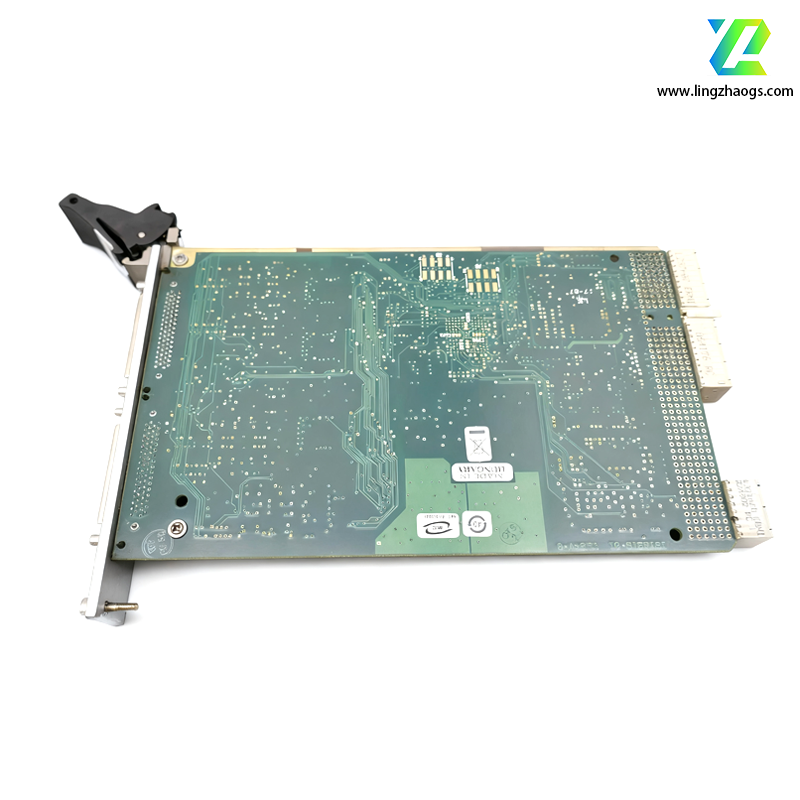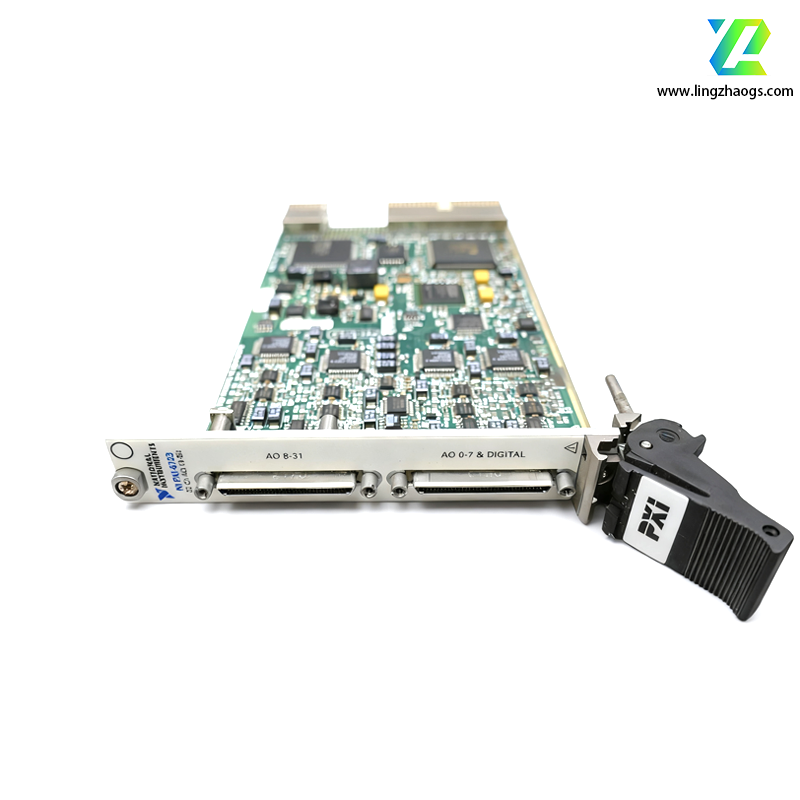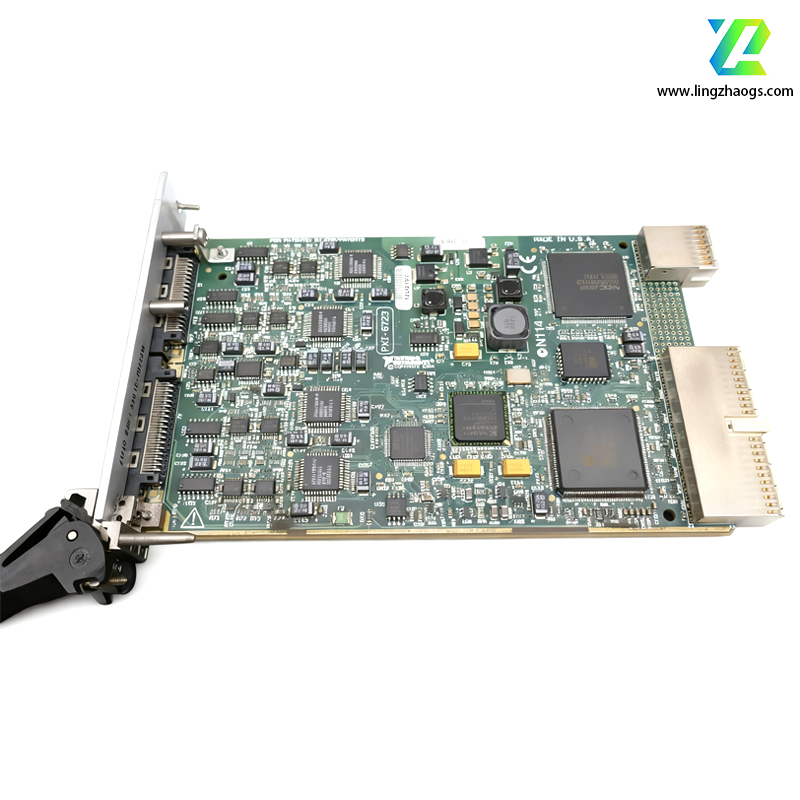The NI PXI - 6723 is a high-density, low-cost analog output module. Here is the detailed information in English:
- Manufacturer: National Instruments.
- Part Number: 778998 - 01.
- Type: PXI analog output interface module.
- Analog Output Channels: It provides 32 single - ended or 16 differential analog output channels. The output resolution is 16 - bit, and the maximum update rate can reach 1.25 MS/s. The module has four groups of eight analog outputs, each with its own onboard digital - to - analog converter (DAC), which can minimize crosstalk between channels.
- Digital I/O Lines: It is equipped with 8 5V TTL/CMOS digital I/O lines, which can be used for triggering, synchronizing, and controlling other instruments.
- Counters/Timers: It has two 24 - bit, 20 MHz counter/timers, which can be used for various timing and counting tasks.
- Triggering and Clocking: It supports digital triggering and external clocking capabilities. There are multiple trigger sources, which can achieve synchronous operation with other instruments. It also has an internal clock that can generate accurate timing signals and support a variety of triggering modes. In addition, it provides an external clock input port, which can be used to synchronize the outputs of multiple PXI - 6723 cards.
- Connector: It uses a 68 - pin connector, which is convenient for connecting to external equipment.
- Waveform Generation: Users can control each data point of each channel to define common waveforms, such as square waves, sine waves, or sawtooth waves, as well as complex waveforms. It is suitable for a variety of applications, including stimulus - response testing, signal simulation, waveform generation, actuator stimulation, and PID control.
- Built - in Self - test (BIST): It has a built - in self - test function, which can ensure the accurate operation of the module and is convenient for users to detect and troubleshoot faults.
- Driver and Software Compatibility: It is supported by NI LabVIEW, NI DAQmx, and NI Measurement Studio software. These software provide a variety of features for configuring and controlling the module, as well as for acquiring and analyzing data, which is convenient for users to develop application programs according to their own needs.





